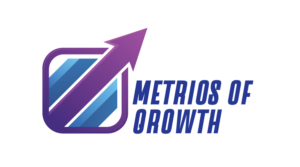The digital marketing world is evolving at an unprecedented pace, and top AI driven seo companies are redefining how businesses optimize their online presence. By leveraging artificial intelligence, agencies like Thrive Internet Marketing Agency, WebFx, Ignite Visibility, SmartSites, and Victorious are transforming traditional SEO into a data-powered, precision-driven discipline. These companies use machine learning and automation to analyze patterns, predict trends, and deliver sustainable organic growth across industries.
Image source: pexels.com
1. Understanding AI-Driven SEO
AI-driven SEO combines data science with marketing expertise to enhance website visibility and performance. It automates keyword research, analyzes user intent, and optimizes content for both search engines and human readers. For instance, Thrive Internet Marketing Agency uses AI tools to predict content performance and improve ranking factors. To implement this, start by integrating AI-powered analytics like Google’s RankBrain or SurferSEO into your workflow. These tools identify what types of content rank best for your niche. Next, analyze engagement metrics to refine content quality, then automate reporting to continuously track performance improvements.
2. Smart Keyword Targeting with Predictive Analytics
Traditional keyword research often relies on guesswork. AI eliminates this by using predictive analytics to determine future search trends. Agencies like WebFx and SmartSites employ machine learning to analyze historical keyword performance and forecast what will drive clicks in the next quarter.
You can replicate this strategy by using tools like Ahrefs or SEMrush integrated with AI-driven models. Step 1: Gather historical search data. Step 2: Use predictive AI tools to forecast keyword demand. Step 3: Develop content clusters around these high-probability keywords, ensuring your site ranks before the competition catches on.
3. Content Optimization Through Natural Language Processing (NLP)
AI tools powered by NLP, such as Clearscope or MarketMuse, assess how well your content aligns with user search intent. Agencies like Ignite Visibility leverage NLP to create semantically rich, search-friendly articles.
To execute this strategy, begin by analyzing top-ranking articles for your target keyword using NLP-based tools. Identify recurring entities, tone, and phrasing patterns. Then, structure your content to match these linguistic models. Finally, use sentiment analysis to ensure your message resonates emotionally with readers while remaining optimized for algorithms.
4. Personalization and Dynamic Content Creation
AI allows marketers to tailor content experiences for each visitor, boosting engagement and conversion rates. Victorious, for example, uses AI to dynamically adjust on-page elements based on user behavior and preferences.
To implement this: Step 1: Deploy AI-driven personalization platforms like HubSpot or Optimizely. Step 2: Collect behavioral data (clicks, dwell time, location). Step 3: Use machine learning algorithms to segment users and serve personalized recommendations or CTAs. This adaptive content ensures that every visitor sees what is most relevant to them, improving conversion potential.
5. Voice Search and Conversational Optimization
With the rise of voice assistants, optimizing for voice search has become critical. SmartSites focuses on conversational keyword integration and structured data to align with how people speak to devices.
Start by identifying question-based phrases through AI keyword tools. Incorporate these naturally into your content using a conversational tone. Next, apply schema markup for FAQs to help search engines understand and display your answers more effectively. This enhances your visibility in voice search results, especially for local SEO queries.
6. Automation in Technical SEO
AI-driven automation helps agencies streamline technical SEO audits. WebFx uses automated crawlers to detect broken links, duplicate content, and crawl inefficiencies at scale.
To follow this, use AI-powered tools like Screaming Frog with machine learning integrations. Step 1: Run a full technical audit. Step 2: Prioritize issues flagged as high-impact by AI algorithms. Step 3: Automate repetitive fixes (e.g., redirects or image compression). This approach saves time while ensuring your site’s infrastructure remains optimized for fast indexing and ranking.
7. Measuring ROI with AI-Powered Analytics
AI isn’t just for optimization—it’s also vital for tracking results. Thrive Internet Marketing Agency employs AI analytics dashboards to correlate traffic spikes with content updates, helping clients understand ROI in real time.
To apply this: Integrate AI tools like Google Analytics 4 with predictive modeling features. Collect campaign data, identify high-performing content, and let AI reveal conversion pathways. Use these insights to refine your next strategy, ensuring every action is driven by measurable data rather than assumption.
8. The Future of AI in SEO
AI’s role in SEO service will continue to expand—from content creation to automated link-building and real-time optimization. Businesses partnering with top AI driven seo companies like Thrive Internet Marketing Agency, WebFx, Ignite Visibility, SmartSites, and Victorious will maintain a competitive advantage. By embracing automation, personalization, and predictive analytics today, marketers can future-proof their strategies and achieve measurable, long-term success in search visibility.

